


Page Description
Discover the definition of fairness
and explore its principles,
applications, and significance in various contexts.
Justice and fairness are related but distinct terms that refer to the moral and ethical code of how human beings interact. Fairness is the ability to apply principles in a way that removes bias and helps create an equal playing field for everyone, even if that means giving different people different tools to set them up equally. Justice is the standard and basis for implementing and distributing resources to people.
Fairness: The Heart of Justice
What does fairness truly mean in the context of justice? As Potter Stewart famously said, “Fairness is what justice really is.” Fairness ensures equality, respect, and impartiality—the very foundation of trust in any legal system. Justice as fairness is not just a principle; it’s what we deeply desire and expect from those entrusted to uphold the law.
On this page, we explore fairness in action and its challenges, particularly through the lens of prosecutorial misconduct. Through insightful explanations, compelling visuals, and thought-provoking videos, you’ll gain a deeper understanding of how fairness is essential to justice—and what happens when it’s compromised.
Explore the following videos to learn more:
- What is “Prosecutorial Misconduct”? – A former District Attorney explains.
- DA Sentenced – A revealing look at prosecutorial misconduct cases.
- Prosecutorial Ethics and the Right to a Fair Trial – A deep dive into the Brady Rule and its role in justice.
Eerlijkheid: Het Hart van Rechtvaardigheid
De Definitie van Rechtvaardigheid
Wat betekent eerlijkheid werkelijk in de context van rechtvaardigheid? Zoals Potter Stewart ooit treffend zei: “Eerlijkheid is wat rechtvaardigheid werkelijk is.” Eerlijkheid zorgt voor gelijkheid, respect en onpartijdigheid—de fundamenten van vertrouwen in elk rechtssysteem. Rechtvaardigheid als eerlijkheid is niet alleen een principe; het is wat we diep van binnen verlangen en verwachten van degenen die verantwoordelijk zijn voor het handhaven van de wet.
Op deze pagina onderzoeken we eerlijkheid in de praktijk en de uitdagingen die daarbij komen kijken, vooral door de lens van wangedrag door openbare aanklagers. Met heldere uitleg, overtuigende visuals en prikkelende video’s krijg je een dieper inzicht in hoe eerlijkheid essentieel is voor rechtvaardigheid—en wat er gebeurt wanneer die wordt ondermijnd.
Bekijk de volgende video’s om meer te leren:
- Wat is “Wangedrag door een Officier van Justitie”? – Een voormalige officier van justitie legt het uit.
- Officier van Justitie Veroordeeld – Een onthullende kijk op gevallen van wangedrag door aanklagers.
- Ethische Verplichtingen van Aanklagers en Het Recht op een Eerlijk Proces – Een diepgaande blik op de Brady-regel en haar rol in rechtvaardigheid.
Fairness: the quality of treating people equally or in a way that is right or reasonable:
He had a real sense of fairness and hated injustice.
The ban on media reporting has made some people question the fairness of the election (= ask whether it was fair).
Cambridge Dictionary
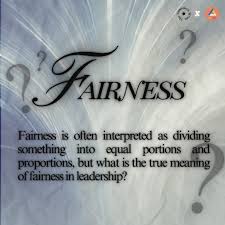 .
.
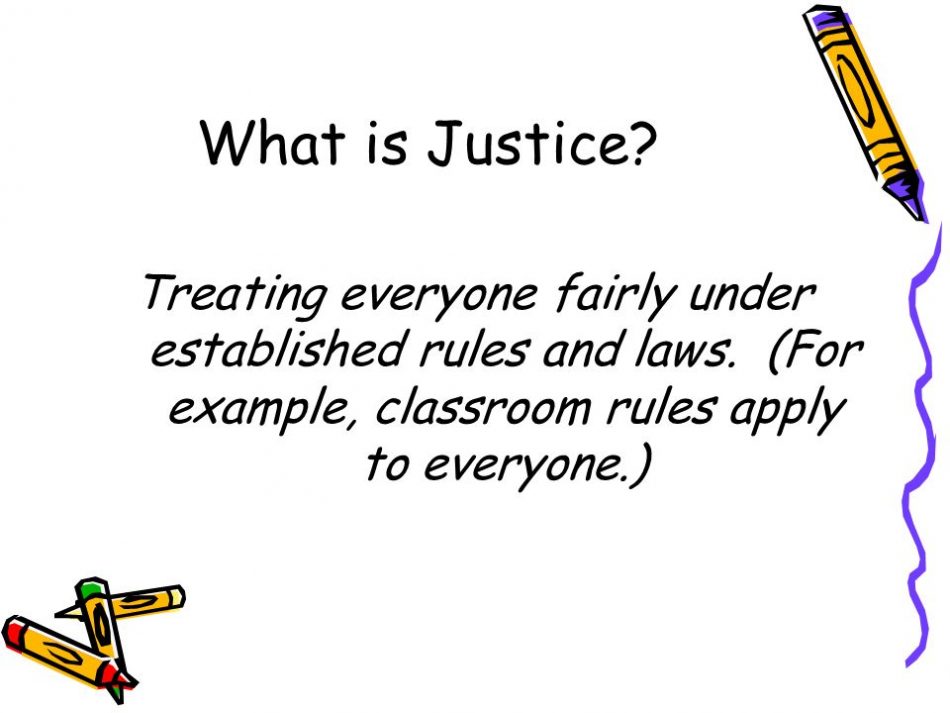
(For example, classroom rules apply to everyone.) .
Fairness refers to the quality or state of being just, impartial, and equitable. It is often used in various contexts, such as ethics, social justice, law, economics, and decision-making. Here are some key points related to fairness:
Equity: Fairness involves ensuring that individuals are treated equitably, regardless of their race, gender, religion, sexual orientation, age, disability, or any other characteristic. It requires avoiding discrimination, bias, and prejudice in decision-making and treating people with dignity and respect.
Justice: Fairness includes upholding principles of justice, which involve giving each person their due based on a set of rules or standards. It requires applying laws and rules consistently and impartially, and holding individuals accountable for their actions without favoritism or bias.
Equality: Fairness involves promoting equality of opportunity, where everyone has a fair chance to succeed and reach their full potential. It requires addressing systemic inequalities and disparities that may exist in society and taking steps to level the playing field.
Transparency: Fairness involves being transparent in decision-making processes, ensuring that information is accessible, and providing explanations for decisions. It requires being open, honest, and accountable in how decisions are made and communicated.
Inclusivity: Fairness involves promoting inclusivity, diversity, and representation. It requires recognizing and valuing diverse perspectives, experiences, and identities, and ensuring that all individuals have a voice and are included in decision-making processes.
Contextual Consideration: Fairness requires taking into account the unique circumstances and context of each situation. It involves considering relevant factors, such as individual needs, historical context, and societal norms, when making decisions or judgments.
Procedural Fairness: Fairness involves following fair and transparent procedures in decision-making, such as providing an opportunity to be heard, considering relevant evidence, and allowing for appeals or review processes. It requires ensuring that the process by which decisions are made is fair and unbiased.
Ethical Considerations: Fairness often involves ethical considerations, such as respecting autonomy, promoting the common good, and upholding fundamental rights and values. It requires taking into account moral principles and ethical guidelines when making decisions that impact individuals or communities.
Balancing Conflicting Interests: Fairness may require balancing conflicting interests or values, such as individual rights versus societal needs, or short-term gains versus long-term sustainability. It involves making reasoned and balanced judgments that take into account different perspectives and strive for a fair outcome.
Continuous Improvement: Fairness is a dynamic concept that requires ongoing reflection, learning, and improvement. It involves being open to feedback, being willing to correct biases or mistakes, and continually striving to enhance fairness in decision-making and actions.
These are some key points related to fairness, which can serve as guiding principles in various domains of human activity to ensure that decisions and actions are just, impartial, and equitable.
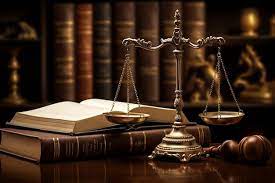
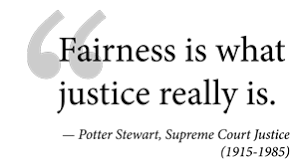
1 What is “Prosecutorial Misconduct”? Former D.A. explains
Gepubliceerd op 30 jan. 2013
Florida has a long history of falsely accusing and wrongly convicting suspects in our criminal justice system, putting innocent men in prison and even on death row. In December 2000, after spending fourteen years on Florida’s death row, Frank Lee Smith died of cancer on January 30, 2000, before he was exonerated by DNA of the 1985 rape and murder of eight-year-old Shandra Whitehead. Appallingly, the police and prosecutors did their best to get a witness to say it was Frank Smith, even after she said she wasn’t sure, very much as Detective Smith tried to do with Jennie Warren in the Adam Walsh case, when the HPD tried to pin Adam’s murder on Toole.
The police will tell a witness that they are sure a suspect committed the crime, because they have “proof.” Not wanting a murderer to be set free, some witnesses will feel it’s their civic duty to make that identification, although not Jennie Warren. As in Ottis Toole’s case, people with intellectual disabilities or below-average intellectual function are particularly vulnerable to being wrongfully convicted. With their desire to please authority figures, they are very susceptible to being influenced during interrogation, and sometimes they confess to crimes they didn’t commit. Most law enforcement officials receive training in how to properly question these suspects, but in Ottis Toole’s case, the police and prosecutors didn’t seem to concern themselves with this formality. They just wanted a conviction.
Frank Townsend was another great example of police and prosecutorial misconduct cases where police take advantage of low IQ. His mental capacity was equivalent to that of an eight-year-old and they cajoled him into confessing. The Broward Sheriff`s Office even took Townsend to some of the murder scenes so that Townsend could show them what happened. After Assistant State Attorney Kelly Hancock prosecuted Townsend, it would take twenty-two years of Townsend’s life before he would be exonerated with DNA and another suspect was captured (October 30, 1988|BY JONATHON KING). Keep in mind, Kelly Hancock was the same attorney that gave John and Reve Walsh advice and the same attorney that sat next to Joe Matthews at the December, 2008 conviction of Ottis Toole.
I only mention these cases to show that the Adam Walsh case isn’t an aberration—rather more of a common occurrence in Florida. There are other cases like these where cops and prosecutors go after the downtrodden who have no education, no money and no family to come to their aid, in order to make themselves look good, and not just in Florida. The Adam Walsh case was just one of them. Only, no one went to prison in the Adam Walsh case. Ottis Toole had already died in prison before ex-cop Joe Matthews and the HPD pinned Adam’s murder on him.
Willis Morgan | Author of FRUSTRATED WITNESS! The True Story of the Adam Walsh Case and Police Misconduct.
JUDGES ARE ALWAYS SIDING WITH THE PROSECUTORS TO THE POINT OF TEAMING UP ON DEFENDANT EVEN IF INNOCENCE IS OBVIOUS . AS LONG AS THE TREASURY NOTES KEEP RAINING FROM THE SKY . JUDGES ARE COMFORTABLE BEING LEECHES AND STEALING FROM THE POOR .
2 DA Sentenced — A Look at Prosecutorial Misconduct Cases
Richard French
Gepubliceerd op 19 nov. 2014
Robert Pasqualitto
Robert Pasqualitto
7 maanden geleden
They’re talking New York. And yes, they have had their problems with DA’s playing games, or making mistakes. But I’ll bet that there are other states where the percentage of Prosecutors withholding evidence are double, tripled, and even quadrupled. Louisiana was famous, or actually infamous for the misconduct under Harry Connick Sr., who would do whatever he had to to convict someone, even though there was plenty of evidence of the persons innocence that the Defense never knew about. There was a DA there that was proud of all the people he sent to Death Row. Even after a mountain of evidence was shown that the DA and Mr. Connick knowingly withheld evidence and lied under oath so many times, they concluded that they couldn’t find any evidence of misconduct. Texas is another one. Alabama, Tennessee, Georgia, Arizona…..and I think you get the point. It’s almost laughable that they could be so incredibly guilty of murder and false imprisonment , and walk away unscathed with impunity. It’s disgraceful. Yet, it happens all the time. Still. And prosecutors know they have nothing to worry about if it’s found out.
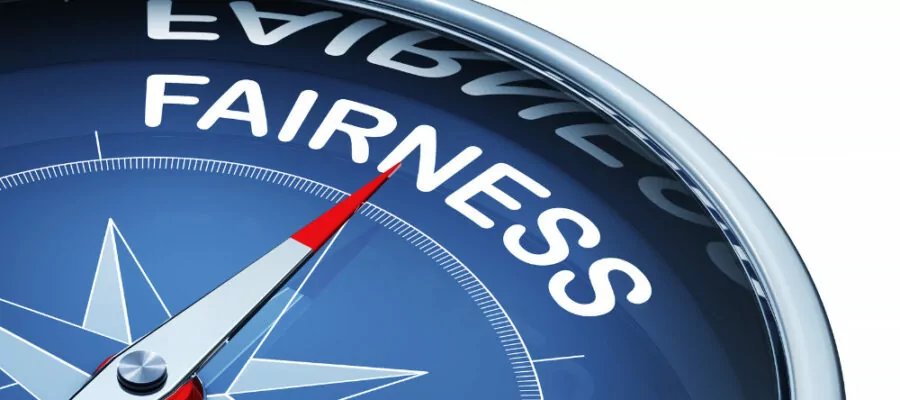
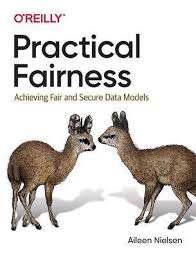
3 Prosecutorial Ethics and the Right to a Fair Trial: The Role of the Brady Rule (Session 3)
Gepubliceerd op 19 okt. 2009
Speaker: Barry Scheck, Director, Innocence Project
Presented by: the Case Western Reserve Law Review
Summary: The Law Review Symposium: The Innocence Project in the Criminal Justice System
Barry Scheck, is a Professor of Law at the Benjamin N. Cardozo School of Law in New York City, where he has served for more than twenty-seven years, and is the Co-Director of the Innocence Project. He is Emeritus Director of Clinical Education, Co-Director of the Trial Advocacy Programs, and the Jacob Burns Center for the Study of Law and Ethics. Prof. Scheck received his undergraduate degree from Yale University in 1971 and his J.D. from Boalt Hall School of Law, University of California at Berkeley in 1974. He worked for three years as a staff attorney at The Legal Aid Society in New York City before joining the faculty at Cardozo.
Prof. Scheck has done extensive trial and appellate litigation in significant civil rights and criminal defense cases. He has published extensively in these areas, including a book with Jim Dwyer and Peter Neufeld entitled, Actual Innocence: When Justice Goes Wrong And How To Make It Right. He has served in prominent positions in many bar associations, including the presidency of the National Association of Criminal Defense Lawyers. Since 1994 he has been a Commissioner on New York State’s Forensic Science Review Board, a body that regulates all crime and forensic DNA laboratories in the state. From 1998 – 2000, he served on the National Institute of Justice’s Commission on the Future of DNA Evidence.
For the past fourteen years, Scheck and Neufeld have run the Innocence Project, now an independent non-profit, affiliated with Cardozo Law School, which uses DNA evidence to exonerate the wrongly convicted. The Project also assists police, prosecutors, and defense attorneys in trying to bring about reform in many areas of the criminal justice system, including eyewitness identification procedures, interrogation methods, crime laboratory administration, and forensic science research. To date, 189 individuals have been exonerated in the United States through post-conviction DNA testing since 1989. You can read about each of these cases at the Innocence Project website.
In Brady v. Maryland (1963), the United States Supreme Court held that a defendant’s due process rights preclude a prosecutor from suppressing material evidence favorable to the defendant. Since the Court’s ruling, the Brady rule has shaped the boundaries of a defendant’s right to a fair trial and defined the standards of justice in the criminal system. The Case Western Reserve Law Review Symposium will explore the role of the Brady rule in various elements of a criminal case, including plea negotiations, scientific evidence and capital sentencing. Participants will also discuss the Brady rule’s impact on prosecutorial ethics in the current justice system. Please join us as many of the country’s leading experts examine the issues that are critical for maintaining each citizen’s right to a fair and just trial.
Deborah Martinez
Deborah Martinez
5 jaar geleden
Some people are not given a fair trial im a witness of it for 24 months I had a judge refusing to take my drug test as evidence said I got them from (PLUMMER) what would close my case was with held in my trial?
1 okt. 2014
5 The surprising reason our correctional system doesn’t work | Brandon W. Mathews | TEDxMileHigh
Gepubliceerd op 13 sep. 2017
Gepubliceerd op 8 mei 2015
Rich Fahle interviews attorney and author Bryan Stevenson about the his book, Just Mercy: A Story of Justice and Redemption.
FROM THE PUBLISHER:
A powerful true story about the potential for mercy to redeem us, and a clarion call to fix our broken system of justice—from one of the most brilliant and influential lawyers of our time
Bryan Stevenson was a young lawyer when he founded the Equal Justice Initiative, a legal practice dedicated to defending those most desperate and in need: the poor, the wrongly condemned, and women and children trapped in the farthest reaches of our criminal justice system. One of his first cases was that of Walter McMillian, a young man who was sentenced to die for a notorious murder he insisted he didn’t commit. The case drew Bryan into a tangle of conspiracy, political machination, and legal brinksmanship—and transformed his understanding of mercy and justice forever.
Just Mercy is at once an unforgettable account of an idealistic, gifted young lawyer’s coming of age, a moving window into the lives of those he has defended, and an inspiring argument for compassion in the pursuit of true justice.
Watch more interviews here: https://www.youtube.com/playlist?list…
7 Grace, Justice, & Mercy: An Evening with Bryan Stevenson & Rev. Tim Keller Q &A
Gepubliceerd op 3 jun. 2016
In an age of mass incarceration and growing racial tension, how can a church committed to the flourishing of a whole city engage as ambassadors of reconciliation and restoration? Bryan Stevenson & Tim Keller will help us explore ways to sustain hope through a grace filled pursuit of justice and mercy as they draw from their own calling and work.
Bryan Stevenson is one of this nation’s most influential public interest lawyers and the Founder & Director of the Equal Justice Initiative. For over 30 years, Stevenson has dedicated his life to help release those wrongly condemned on death row. He has also successfully advocated to eliminate the prosecution of children as adults. Leading the charge for a renewed conversation about racism in the US by connecting contemporary injustices with slavery, lynching, and segregation, Stevenson is the bestselling author of Just Mercy: A Story of Justice and Redemption.
Rev. Tim Keller has committed his life to presenting the gospel – through preaching, teaching, and church planting – in ways that challenge not just our heads but our hearts to bring about lasting transformation. Co-founder and Senior Pastor of Redeemer Presbyterian Church for the last 27 years, Tim is also a prolific author. His many books have been translated into 26 languages.
Moderated by: Pamela Brown-Peterside is a long-time member of Redeemer’s Grace & Race group and has been working at Redeemer for 8 years. She currently oversees a team that cares for 90 community groups that are part of our West Side congregation. Community groups meet throughout the week usually in people’s apartments to worship, pray, study the Bible, and serve together. Before joining the Redeemer staff, Pamela worked in HIV/AIDS prevention with women in the South Bronx for almost a decade and saw firsthand the effects of poverty and mass incarceration in those communities of color. Originally from Nigeria, she has lived in New York City for over 20 years.
9 In Conversation: Bryan Stevenson and Anthony Ray Hinton
10 The Forum: Professor of Clinical Law Bryan Stevenson on Just Mercy
Gepubliceerd op 3 apr. 2015
Milbank Tweed Forum: A talk by Professor of Clinical Law Bryan Stevenson on his recently published book, Just Mercy: A Story of Justice and Redemption
Followed by Q&A moderated by Dean Trevor Morrison
This event was co-sponsored by the Brennan Center for Justice
“Just Mercy is every bit as moving as To Kill a Mockingbird, and in some ways more so. . . . [It] demonstrates, as powerfully as any book on criminal justice that I’ve ever read, the extent to which brutality, unfairness, and racial bias continue to infect criminal law in the United States. But at the same time that [Bryan] Stevenson tells an utterly damning story of deep-seated and widespread injustice, he also recounts instances of human compassion, understanding, mercy, and justice that offer hope. . . . Just Mercy is a remarkable amalgam, at once a searing indictment of American criminal justice and a stirring testament to the salvation that fighting for the vulnerable sometimes yields.”
—David Cole, The New York Review of Books
“A searing, moving and infuriating memoir . . . Bryan Stevenson may, indeed, be America’s Mandela. For decades he has fought judges, prosecutors and police on behalf of those who are impoverished, black or both. . . . Injustice is easy not to notice when it affects people different from ourselves; that helps explain the obliviousness of our own generation to inequity today. We need to wake up. And that is why we need a Mandela in this country.”
—Nicholas Kristof, The New York Times
This event was held on April 1, 2015.
11 Anthony Ray Hinton, “The Sun Does Shine”
Gepubliceerd op 11 apr. 2018
Anthony Ray Hinton shares his story and discusses his book, “The Sun Does Shine” at Politics and Prose on 4/2/18.
Hinton was twenty-nine when he was arrested on two counts of capital murder in Alabama in 1985. He was innocent, but he was also poor and black with an incompetent defense attorney. Hinton was convicted, sentenced to death by electrocution, and spent the first three years on death row in silent, bitter despair. Then he became determined to survive, and even to thrive. He kept his own spirits up by bolstering his fellow inmates, and found new representation with Bryan Stevenson, founder of the Equal Justice Initiative and author of Just Mercy. Released and exonerated in 2015, Hinton is now an advocate for prison reform and a compelling speaker on the power of hope.
https://www.politics-prose.com/book/9…
Founded by Carla Cohen and Barbara Meade in 1984, Politics and Prose Bookstore is Washington, D.C.’s premier independent bookstore and cultural hub, a gathering place for people interested in reading and discussing books. Politics and Prose offers superior service, unusual book choices, and a haven for book lovers in the store and online. Visit them on the web at http://www.politics-prose.com/
Produced by Tom Warren
BLADWIJZER
12 The Weekly: Bryan Stevenson Extended Interview
13 Bryan Stevenson | Oprah’s Super Soul Podcast | Presented By Hyundai
Back to menu HIGHLY IMPORTANT CONTENT
10 feb 2023 Full Episodes: Oprah’s Super Soul | OWN Podcasts
Presented by The new Hyundai TUCSON. It’s your journey. Visit https://www.hyundaiusa.com/us/en/vehi… to learn more.
Oprah sits down with Bryan Stevenson, the law professor, civil rights attorney and executive director of the Equal Justice Initiative, who shares why he has dedicated his life to giving a voice to incarcerated men and women. Bryan has spent more than three decades challenging poverty and racial discrimination within the criminal justice system. He explains why he believes we are not fully evolved as human beings until we care about universal human rights and basic dignity. Bryan has won major legal challenges eliminating excessive and unfair sentencing, exonerating innocent death row prisoners and confronting abuse of the incarcerated. Bryan also discusses his New York Times best-selling book, “Just Mercy,” his views on the death penalty, and the transformative power of mercy and forgiveness. Next week, be sure to download Oprah’s two-part podcast interview with one of Bryan Stevenson’s most extraordinary clients, Anthony Ray Hinton, a man who wrongfully spent 30 years on death row until Bryan helped him win his freedom. Anthony’s new memoir about his experience in prison, “The Sun Does Shine,” was just selected for Oprah’s Book Club.
Full Episode: “Bryan Stevenson” (Ep. 621) | Super Soul Sunday | Oprah Winfrey Network
23 apr 2021
Oprah talks to human rights activist and civil rights attorney Bryan Stevenson for a conversation about living your calling, giving a voice to the powerless and how his life changed by meeting people on death row. (Original air date: November 1, 2015)
About SuperSoul Sunday:
SuperSoul Sunday is the multi-award winning series that delivers a timely thought-provoking, eye-opening and inspiring block of programming designed to help viewers awaken to their best selves and discover a deeper connection to the world around them. Recognized by the National Academy of Television Arts & Sciences with two Daytime Emmy awards, SuperSoul Sunday features all-new conversations between Oprah Winfrey and top thinkers, authors, visionaries and spiritual leaders exploring themes and issues including happiness, personal fulfillment, spirituality, conscious living and what it means to be alive in today’s world.
About OWN:
Oprah Winfrey Network is the first and only network named for, and inspired by, a single iconic leader. Oprah Winfrey’s heart and creative instincts inform the brand — and the magnetism of the channel.
Winfrey provides leadership in programming and attracts superstar talent to join her in primetime, building a global community of like-minded viewers and leading that community to connect on social media and beyond. OWN is a singular destination on cable. Depth with edge. Heart. Star power. Connection. And endless possibilities.
Oprah’s SuperSoul Conversations Podcast – Bryan Stevenson: The Power of Mercy and Forgiveness
14 apr 2019
Nearly 10 years after their ground-breaking web series, Oprah Winfrey sits down with guests. They discuss eveything from success and happines to despression.
“Super Soul Sunday” is the three-time Emmy award-winning series that delivers timely, thought-provoking, eye-opening and inspiring programming designed to help viewers awaken to their best selves and discover a deeper connection to the world around them.
The series features all-new conversations between Oprah Winfrey and top thinkers, authors, visionaries and spiritual leaders exploring themes and issues including happiness, personal fulfillment, spirituality, conscious living and what it means to be alive in today’s world.
Oprah Winfrey provides leadership in original scripted and unscripted programming and attracts superstar talent to join her in primetime, building a global community of like-minded viewers and leading that community to connect on social media and beyond. OWN is a singular destination on cable. Depth with edge. Heart. Star power. Connection. And endless possibilities.
Find Your Greatness
Oprah sits down with Bryan Stevenson, the law professor, civil rights attorney and executive director of the Equal Justice Initiative, who shares why he has dedicated his life to giving a voice to incarcerated men and women.
Gepubliceerd op 2 nov. 2015
14 Tavis Smiley & Bryan Stevenson: Dr. King’s Beyond Vietnam Speech
Educational
15 Justice in an Era of Mass Imprisonment | Institute of Politics
IMPORTANT VIDEO: content
BOOKMARK
16 Bryan Stevenson, Founder & Executive Director of the Equal Justice Initiative – Boldly Going
Gepubliceerd op 20 okt. 2015
Educational
17 Pomona College Criminal Justice Symposium – Master Class with Bryan Stevenson
Back to menu
IMPORTANT VIDEO
BOOKMARK
18 NYU Law Professor Bryan Stevenson explains why he wrote “Just Mercy,” his first book
Back to menu
NYU School of Law
Gepubliceerd op 27 okt. 2014
“Just Mercy” author Bryan Stevenson is a professor of clinical law at NYU School of Law and executive director of the Equal Justice Initiative, a non-profit organization dedicated to providing legal representation for condemned prisoners and juvenile offenders (learn more: eji.org/about). A MacArthur “genius” grant recipient, Stevenson was honored with the 2015 NAACP Image Award for Outstanding Literary Work (Non-Fiction) for “Just Mercy.”
19 Bryan Stevenson
20 IJP Speaker Series Part 2 – Anthony Ray Hinton – The Cascading Consequences of Wrongful Conviction
Gepubliceerd op 18 nov. 2016
21 How to fix our broken criminal justice system | Robert Barton | TEDxSanQuentin
20 apr. 2017
IMPORTANT CONTENT
BOOKMARK
22 Conversations with the Innocence Project: Prosecutorial Power and Accountability
30 okt. 2018
22 Cop Chases After Criminal With Donkey
19 mei 2019